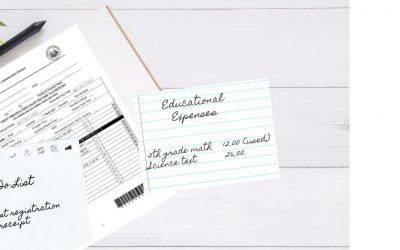…With My Legislator! How Do I Do It?
Several approaches serve to connect effectively with your senator, delegates, and governor. Depending on your personality type, the issue at hand, your comfort level, and the time available, you may prefer personal visits, phone calls, or letters – all useful means of communication for important legislative issues.
Ultimately, the goal of contacting your legislators is to establish and develop a relationship through which you are able to help them understand issues that pertain to home education. While they are elected officials, they are not experts in every issue that crosses their desks, and you can help bridge that knowledge gap.
The Personal Visit
Face-to-face interaction is generally the most compelling method to convey your message and create a good impression. The effort to meet in person, even if very briefly, not only allows you and your representative to associate names with “real people,” but is a high-impact way to show your interest as a concerned constituent. Tips to heighten that impact:
Whether Home School Day at the Capitol or some other day, you should call or email to schedule your meeting ahead of time.
Be punctual!
Go the extra mile to be flexible as well, realizing that representatives and their staffs face increasing demands as the 60-day session moves along.
Committee and caucus meetings can arise quickly. Offer to wait until legislators are available after a meeting.
Phone Calls
Calling can also be effective and is often the most practical way to speak to an issue. The following tips will make your message more persuasive:
Besides getting your facts in order (bill name and number, legislation language, or county statistics, for example), it’s a good idea to make notes on what you want to say and begin your call by reading your message.
If you reach an answering machine, keep your message brief and include your contact information.
Make sure to remind your legislator of any previous contact that you have had: e.g., “I appreciate what you said when we last talked in April…”
Letters
One well-written letter typically carries more weight than a formal petition with many signatures. To write a better letter:
Take the time to express your thoughts in good English.
Avoid rambling, and do not rail or rant!
Even in cases where there may be differences of opinion, honor your elected official with courtesy, respect, and proper title. (See etiquette tips below.)
Always include your address and sign your name legibly.
**You exert maximum influence by addressing your comments directly to your legislator, which is what representative government is about!
Basic Dos and Don’ts for Any Contact
Regardless of the communication method, keeping it personal is the best approach: what do you care about, what is your homeschooling experience, how are your children doing? It’s best to avoid trying to be an expert on legislation; instead, point out that your family is represented by CHEWV, working with HSLDA.
Always assume that the legislator worked to get elected in order to do what’s best for the state and his/her constituents. Express thanks for the many legislative actions that have enhanced homeschooling liberty in West Virginia.
Avoid a negative message such as being against public education or teachers. “Sweetness of speech increases persuasiveness” – it’s better, generally, to emphasize what you’re for rather than what you’re against. If you are willing, invite the legislator to contact you with questions about legislative proposals that may come up during the session.
Time taken to prepare a bit beforehand will boost your confidence. Learn about your legislator and about homeschool issues. CHEWV works to provide resources and links on our website to help you. However, this need not be exhaustive by any means; don’t let it deter you from participating!
First, find out a little about your legislator. What is his or her political party, tenure in office, and on what committees does he or she serve? You may also be able to dig deeper and discover how your representatives tend to vote on homeschooling and other educational issues. Besides a brief biography on each senator and delegate, a list of the committees on which all serve is available on the West Virginia Legislature website: http://www.wvlegislature.gov/
Second, familiarize yourself with basic questions about homeschooling. Your legislator will likely have many of the same questions that other people ask when they learn you homeschool your children, including questions about socialization, academics, or testing. Don’t assume your legislator is antagonistic when he asks questions. He or she may simply be trying to learn more about the issue!
Also, don’t be surprised if it appears you are more knowledgeable than your representative. Should a question arise to which you do not know the answer, don’t hesitate to admit your lack of knowledge. Be willing to pursue the answer and report back. No one can be expected to address every question or matter of concern regarding a specific topic or problem.
Again, emphasize the positives of your own experience and be ready to share personal examples of how particular laws/regulations/legislation affect you or your community on a local level. Finally, be respectful and as appreciative possible while stating your concerns or position.
Basic Etiquette When Addressing Your Legislator
* Address your Senator or Representative properly. When addressing them on the phone or in person, use their office title and last name. When writing letters, use the salutation: Dear Senator Smith/Delegate Smith… and close with Sincerely yours or Respectfully yours …
* Identify yourself immediately upon each contact. Public officials meet too many people to remember everyone!
* Don’t debate with a legislator or give ultimatums such as, “I won’t vote for you if you do not support my position.” Respect the legislator’s right to disagree with you.
*If you are communicating regarding a specific legislative issue, find out the current status of the legislation. Has it been referred to a committee? Is it in committee? Is it on the floor for a vote? What reading (first, second or third) is it on? Whenever possible, refer to a bill by number. You can easily find all of this information at https://www.heritagecwv.org/active-legislation/ using the “track bill” link option. Or go directly to this page: http://www.wvlegislature.gov/Bill_Status/bill_status.cfm Simple!
* Use your own words. Express your position clearly, yet avoid being an ever-critical, opposing voice if you possibly can.
* Be brief and explicit, courteous and reasonable. Make the most of each opportunity to be a witness by presenting a positive, God-honoring attitude. Maintain this attitude with both legislators and their staff!
*Don’t apologize for taking his or her time. If you are brief and to the point, they will be glad to hear from you.
*Don’t begin any communication with the phrase, “As a citizen and taxpayer.” Your elected representative knows we all pay taxes.
* Be a good listener and hear out what your legislator has to say on the issue, but don’t make notes of a conversation while talking to a legislator.
* Don’t send copies or form letters unless you have taken the time to include a personal note.
*Always thank the legislator for taking the time to hear your position.
*Always follow up with a written thank-you note and amplify your main points. It can be appropriate to have an addressed, stamped note card ready to write immediately after the visit/call.
* When your legislator goes the extra mile to be supportive, you may consider acknowledging his or her efforts by writing a letter to the editor in your local paper.





Recent Comments